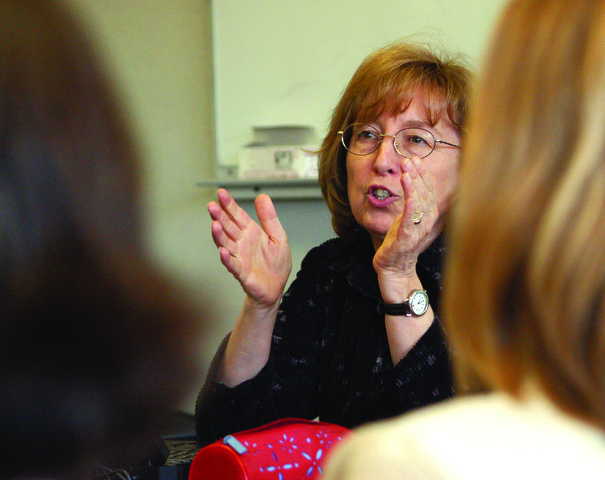Researchers Rely on Rural Families for Key Insights on Children
 Since 2003, rural North Carolina and Pennsylvania residents have been providing valuable evidence to researchers about how parenting, child care, and many other factors affect young children and their families. Scientists at UNC’s Frank Porter Graham Child Development Institute (FPG) began following the children at birth for the Family Life Project, and researchers say these families have never been more important to understanding how children grow and learn in rural communities.
Since 2003, rural North Carolina and Pennsylvania residents have been providing valuable evidence to researchers about how parenting, child care, and many other factors affect young children and their families. Scientists at UNC’s Frank Porter Graham Child Development Institute (FPG) began following the children at birth for the Family Life Project, and researchers say these families have never been more important to understanding how children grow and learn in rural communities.
“Grade school is a critical period for setting the stage for children’s future academic success,” said FPG fellow Lynne Vernon-Feagans (right), principal investigator of the Family Life Project. Vernon-Feagans is now heading a new phase of the project to look at the reading skills of fifth-graders as they continue into middle school.
According to Vernon-Feagans and her co-principal investigator, Patricia Garrett-Peters, understanding the relationship between children’s literacy and later achievement is especially important in rural communities. As these children grow older they typically have fewer good educational and employment opportunities than children in other areas.
“Thirty percent of urban adults have a college degree, but less than 18 percent of rural adults have a college degree,” said Vernon-Feagans. “These differences in education have more dire implications in rural America now than they did 40 years ago, when over half of all high school graduates lived in the middle class.”
Vernon-Feagans, the William C. Friday Distinguished Professor in UNC’s School of Education, explained that people with only high school degrees have lost ground economically since 1970. She said the Family Life Project now is studying children as they progress from fifth through seventh grade for clues about why those students might have less access to later opportunities.
“Which parenting practices—and which instructional practices—are most important to building literacy for rural children?” Vernon-Feagans asked. “Does good instruction at elementary and middle school help our most vulnerable children achieve their potential even in the face of many home challenges? These are important questions.”
Vernon-Feagans said that roughly 20 percent of children in the United States live in rural communities, but surprisingly few studies have looked at children from these areas.
Since 2003, the Family Life Project has helped to fill this need by following 1,292 children from birth in six rural counties in North Carolina and Pennsylvania. In collaboration with Mark Greenberg at Penn State University and with researchers at several other universities and institutes, Vernon-Feagans and her colleagues have published numerous studies that have revealed what it means to be a child in rural America.
With data from living rooms to schools, the project has focused on a representative sample of children, taking a broad look at the impacts of parenting, poverty, early child care experiences, classroom quality, and other variables on a wide variety of child outcomes.
Key findings have shown how important it is for parents and teachers to engage in complex and detailed interactions with their young children, how poverty brings challenges that affect parenting, and how fathers make key contributions to child development, as well as many other insights about children in rural areas.
The project’s ongoing collection of information continues to give rise to more research in novel areas, such as a new FPG study to look at the effects of adversity on children’s immune systems.
Vernon-Feagans said through the last decade one thing in particular stands as a testament to the families she studies.
“It’s quite amazing that young children even from poor families in rural communities are on target when they start school,” she said. “This may be because of a variety of protective factors—such as less exposure to violent crime than in urban areas. More contact with extended families and churches may also bring these children a better sense of community.”
Vernon-Feagans added, however, that the education and income gap between adults in rural communities remains wide and troubling.
“We need more research, but our families in North Carolina and Pennsylvania are helping us understand why and how this happens,” she said. “With their help, the Family Life Project continues to unlock clues that can show how to close that gap.”
Contact:
Lynne Vernon-Feagans, Fellow
UNC’s Frank Porter Graham Child Development Institute
Email: lynnevf@email.unc.edu
Phone: 919-966-5484 or 919-843-5623
Bio: http://fpg.unc.edu/profiles/lynne-vernon-feagans
FPG grants permission to publish this story in part or in its entirety, as well as to use the above photograph in conjunction with the story.
Photo credit/caption: Lynne Vernon-Feagans, fellow at UNC's Frank Porter Graham Child Development Institute.
DS